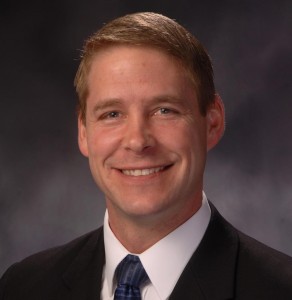JEFFERSON CITY, Mo. – After last week’s House Elections Committee heard overwhelmingly negative testimony against a piece of photo voter ID legislation offered by Rep. Justin Alferman, the Senate had their turn to hear from opponents of the measure.
While Sen. Will Kraus’, R-Lee’s Summitt, bill did receive some support from those who sought to prevent voter fraud, those who testified in opposition expressed their fears that this measure could unintentionally disenfranchise people of their fundamental right to vote.
“Voter photo ID is a common sense way to protect the integrity of elections,” said Kraus. “The vast majority of voters already possess a photo ID, because you need one to do anything from cashing a check to receiving Social Security.”
Jeremy Cady of the Missouri Alliance for Freedom testified in support of the bill.
“Photo ID is a simple measure to ensure those voting are supposed to be voting,” said Cady. “Our election process, and votes cast by law abiding citizens, is diluted when illegal and fraudulent votes are cast.”

“We can’t support any legislation that would disenfranchise a single eligible Missouri voter,” said John Scott of Secretary of State Jason Kander’s office. “The way that the legislation tries to accommodate for some of the folks that wouldn’t have that ID or have access to that ID doesn’t fully or adequately protect their right to vote.”
Scott noted, after prompted by a question from Sen. Jill Schupp, D-St. Louis, that one problem with the legislation was that the identification provided to those who lacked a Missouri driver’s license was subject to appropriation. Schupp wondered what would happen if funds could not be provided in the legislation.
“When you start talking about fundamental rights like they’re subject to appropriation, that’s pretty dangerous,” he said.
Scott said his office estimated around 220,000 Missourians could be subject to possible disenfranchisement because of the legislation. Many testified that averting the relatively small problem of voter fraud, of which there were 17 cases in Missouri from 2000 to 2012 according to an Arizona State University study, was not worth the risk of potentially barring nearly a quarter of a million Missourians from voting.
Schupp said the point of voting legislation should be to improve turnout, not turn voters away.
“I have never heard anyone say, ‘The turnout at that last election was way too big.’”






